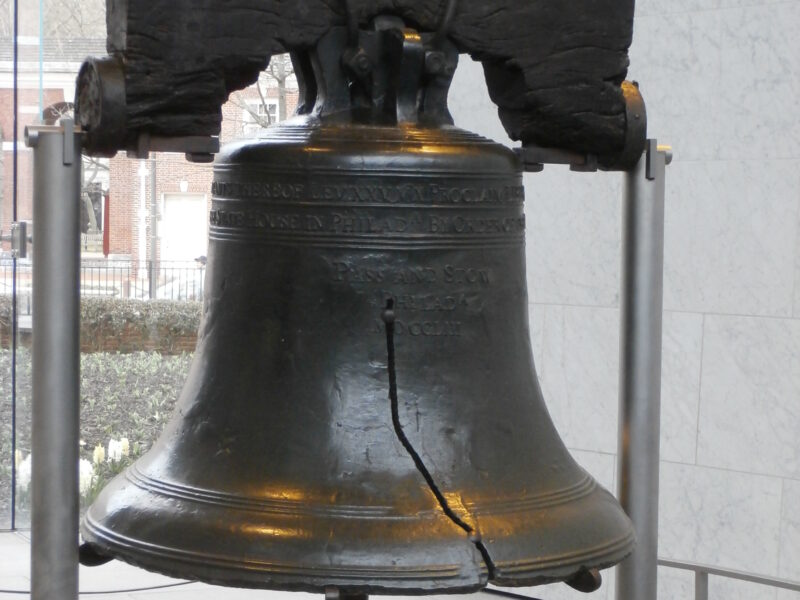Impeachment and Partisanship
“There are those who turn justice into bitterness and cast righteousness to the ground.” Amos 5:7 NIV
When I was young, like most guys my age, there was one thing on top of my thought list: girls. Back then, and many may find this hard to believe, I was shy. This was especially so around girls. Things like confidence and being outgoing were a long way down the road for me.
Tribes of us guys would form. I’m not sure how this happens, but I’m sure my stock increased because I had a cute sister. One of the main topics we talked about was, you guessed it: girls.
The girls, on the other hand, seemed to focus on how cute a guy was above anything else. Once, when I was first learning to drive, my family went on vacation. I was entering a city and listening for instructions as to which way I should go. This was in the pre-GPS days.
As we traveled down the road my Dad said, “I think you turn right.” My Mom said, “I believe we need to turn left.” My sister chimed in, “No! Turn around. I just saw a cute boy.”
I was, at best, an average looking boy. There weren’t many girls saying, “Wow! Look at that guy” when I walked by. I know this is true because I had a girl in my junior English class who didn’t even know I existed.
After high school, I worked summer jobs as a plumber’s helper. We were doing a lot of digging and lifting heavy pipe and fittings. I beefed up quite a bit. Girls started noticing me a little then.
I saw that same girl who was in my English class years later. She didn’t believe me when I told her she was in my class and she never even said a word to me. After looking through an old year book, she came back and told me that, sure enough, I was in her class. Then she said, “You sure have changed.” I was the same person.
Back to my high school group of buddies. I was in several groups with different guys. Funny thing is, most of these groups only had one good-looking guy in them. It was never me.
This worked for both types of people in the group, though. The good-looking guy got to be the best looking of the bunch. Other members of the tribe got to be seen with the good-looking guy. At least the girls would be looking our way, even if it wasn’t because of us personally.
Like I said before, we guys would talk about girls and those girls were usually the ones we had crushes on. Some guys had as many crushes as they could turn their heads at. Personally, I was a one-crush-boy. I could only have a crush on one girl at a time. At this time it was a girl who was a friend of mine. The problem was, she always thought of me more as a brother than a “guy.”
In one of my groups, I was telling the guys of my crush on my friend. This went on for a few weeks. To my horror, the good-looking guy in our group started going out with her. I was so upset. Betrayal was the only thought that crossed my mind any time I saw either of them.
See, I liked her more than because she was cute. I also liked her because she was fun to be around. He, on the other hand, only saw her as cute. The only tool in my arsenal was the silent treatment. I refused to talk to either one of them.
Their relationship dissolved rather quickly. A lesson you learn much later in life was displayed then. Relationships need to be about more than just physical attraction. Still, it was a long time before I would compromise on my no-talking ban with either of them.
Today we live in a world where compromise is such a dirty word. We are so determined to stick by our political views that even listening to the other side is considered a weakness. Partisan politics has laid its heavy hand on both the Clinton and Trump White Houses. Both felt its wrath with a thing called impeachment.
The Constitution of the United States gives us very vague guidelines for impeachment. Basically, the House of Representatives comes up with the charges (Article 1, Section 2, Clause 5). The Senate tries and the Chief Justice of the Supreme Court presides over that trial (Article 1, Section 3, Clause 6). Two-thirds of the Senators must vote against the impeached person before that person is removed from office (Article 1, Section 3, Clause 6).
So when it comes to vague constitutional issues, like impeachment, we usually follow past precedence. Precedence, in this case, means that we follow the path laid out before. In the case where there is no precedence, we try to blaze the trail with our own beliefs.
Looking over most of the impeachments that have happened in our history, they have one shocking thing in common. Most of them have been very partisan. Of course, while they are going on, the party presenting this option denies that is the case. For whatever the reason, the opposing party just wants that person out of the way.
In order to get that person out of the way, the party needs to find a charge or some charges. They need to be so terrible that they can rally the troops behind these charges. Next, they need to get the ears of some willing souls to listen to their cries. Finally, they need to recruit some converts from the other side. Failure on any one of those fronts means acquittal.
It rarely works and it usually backfires on the ones bringing the charges. The highly-charged energy they bring into the room often gets flattened on its exit. They usually press forward without counting the votes to see if they actually have a chance at victory. The person they want to remove actually gets stronger instead of weaker.
So where did all this precedent come from? On this topic, I doubt his name would be the one you think of first. He had a knack of working behind the scenes, while his likeable nature stayed intact.
His success has led others to believe they can have victory, too. What others many may fail to see is that his cockiness from that first success didn’t last long. When he tried again, with a partisan tilt, he failed miserably.
The “people” in the Bible are really big into their heritage. That family tree seems to drive them to all kinds of madness. If you look at it carefully, there must have been a lot of pressure on that first born son. That pressure didn’t come without rewards though.
Seems like the first born son was in line for a lot more of the estate on the father’s death. Carrying on the family name, for this first born, appeared to have many perks. Despite this fact, the first born isn’t usually portrayed well.
You only need to go a few verses into the Bible to see the first son blow it. Cain kills Abel. Not a very good start for first born sons. But it doesn’t stop there. Many times the first born son gets bypassed. Sometimes it’s their own fault and other times it isn’t.
Moses wasn’t the first born. Neither was David. David was the eighth son of Jesse. The king who replaced him, Solomon, was David’s tenth son. Judah, who the line Jesus comes from, was the fourth son. Maybe Jesus turned the ship back upright. Jesus was the first born of Joseph and Mary.
In the Bible, there just seems to be something special about carrying on for the father. Call it a blessing or an inheritance, many Bible characters strive for it. As a guy, I can completely understand. There is such a great feeling when your father’s eyes glow because of you.
But there seems to be something more. It’s like the torch being passed is a trust that you are the best one to carry on the family legacy. The whole future of the family line rests on you. It’s not something you fear, it’s something you can be proud of.
This Bible character seemed to be willing to do anything to capture that honor. Not being the oldest son required much scheming to make it happen. The whole thing seemed to backfire. His scheming finally caught up with him.
Sometimes when you are willing to do anything, including destroying people, to achieve your goals, you pay a heavy price. Even Bible characters find this out the hard way.
Article 2, Section 4 of the Constitution states:
- The President, Vice President and all civil Officers of the United States, shall be removed from Office on Impeachment for, and Conviction of, Treason, Bribery, or other high Crimes and Misdemeanors.
When most people think of impeachment, they think of the President being impeached. The fact is, the Constitution states that it can be the President, Vice President, or “all civil officers of the United States.”
A little more than a decade after the Constitution passed, the first impeachment came. Here we saw the first test of the impeachment process. It involved Tennessee Senator William Blount. Blount was a western land speculator. Apparently, he tried to solicit the British help to overthrow the French in New Orleans to stabilize the land market.
The House impeached Blount, but the Senate expelled him. Many believe this expulsion exempts Congress from the impeachment process. There has never been a Congressman since who has been impeached. I guess this is one of those precedents we talked about earlier.
It is the second and third impeachments that started the partisan impeachment divide, though. The second one involved US District Court Judge John Pickering. The President was very upset with the judge overturning one of his landmark Acts that he had sent through Congress.
This was one of those elections where a completely opposite party took over Congress and the White House. The party thrown out was none too happy about this. They cried foul when the impeachment was sent forward. Pickering’s mental state did not help his cause much either.
Another issue was Pickering’s drinking. He was found intoxicated while he was on the bench. This became one of the impeachment charges against him. They also accused him of making unlawful rulings.
Pickering was his own worst enemy. He didn’t even show up at his trial. This conviction was easy. By a vote of 19 to 7, Pickering was removed from office. Thus, Pickering became the first person removed by the impeachment process in the Constitution.
Fresh off his victory over the Federalists in the Pickering impeachment, Thomas Jefferson had a new target. He set his eyes on another one of his foes: Supreme Court Justice Samuel Chase. Chase had been a thorn in Jefferson’s side for quite a while. Jefferson must have thought if he could rid the government of this powerful Federalist, who could escape his wrath?
Although the Senate was heavily tilted in Jefferson’s direction (25 Republicans to 9 Federalists), the votes weren’t even close. With 23 votes needed to remove, the closest charge that would have removed Chase only garnered 18 votes. I guess “arbitrary and oppressive conduct of trials” set a precedent of what shouldn’t be impeached. Chase would be the first and last Supreme Court Justice to be impeached.
The Constitution goes on to state the “reasons” for impeachment are: treason, bribery, or other high crimes and misdemeanors. It also states that the President has the power to pardon, except in the case of impeachment (Article 2, Section 2, Clause 1).
Including Donald Trump, there have been twenty times the House has issued the impeachment order. In three of those cases, the person resigned before the trial could begin. Because of this, many only count it as seventeen impeachments. Only eight of those impeachments have resulted in removal from office. All eight of those were judges.
Our Bible character sure didn’t feel like the king of the hill. After all, that’s all he seemed to want out of life. Here he was, king of the hill. He reached the top. It wasn’t a pretty view from where he was standing.
What did the top look like? He was scared and embarrassed. This wasn’t the way it was supposed to be. He was supposed to be the destiny of this family, but here he was crawling back. A fine family leader he turned out to be.
Jacob was Esau’s twin. It was a race out of the womb to see who would come out first. Despite the fact that Jacob grabbed Esau’s heel in the womb, Esau would win that race. Esau would be the first born son and be destined for all the honors that would be bestowed on him.
Either Esau didn’t take the honors too seriously, or he wasn’t too bright. Because of a little hunger, he would give up his birthright. Jacob, the king of the swindle, would gain it for a mere bowl of stew. I hope that was some really good stew.
Then on his father’s deathbed, Jacob’s tricks would strike again. With his mother’s help, Jacob would trick his blind father into believing he was Esau. If he could do this, he would get Esau’s blessing, too.
Again, Jacob’s talent for the swindle must have been amazing. His father was fooled and Jacob had the blessing to go along with the birthright. Despite Esau’s pleading, Isaac, their Dad, couldn’t take back what he had already given Jacob.
To say Esau was mad might be an understatement. He was so mad that Jacob’s Mom told him, “Boy, get out of town because your brother is going to kill you!” That’s exactly what Jacob did.
My thoughts here are, what good were the birthright and the blessing if Jacob couldn’t use them? All the plotting and scheming really served no purpose. Many years later, Jacob must have come to the same conclusion. He traveled back home in an effort to restore his relationship with his brother.
Still fearing for his life, Jacob stays in the back of the pack. He sends all kinds of gifts in front of him hoping that will buy Esau’s forgiveness. I wonder if the value of those gifts exceeded the inheritance he would have gotten from Isaac?
If that were the case, God would have given Jacob everything he would have gotten without the birthright and the blessing. All Jacob threw in front of him, as a gift to Esau, was still not all Jacob had. With his nature, I’m sure he knew he could have gotten all that back rather quickly.
As the story ends, one might get the impression that the brothers made up and lived happily ever after. I guess we may never know whether that was true or not. What we do know is that the family lines of Esau and Jacob would be bitter, hostile enemies to each other.
Very rarely do we weigh the consequences of our bitterness. We give the silent treatment. Our political rivals feel our wrath. Broken relationships end up lasting longer than our lifetimes. Who does it really end up hurting?



